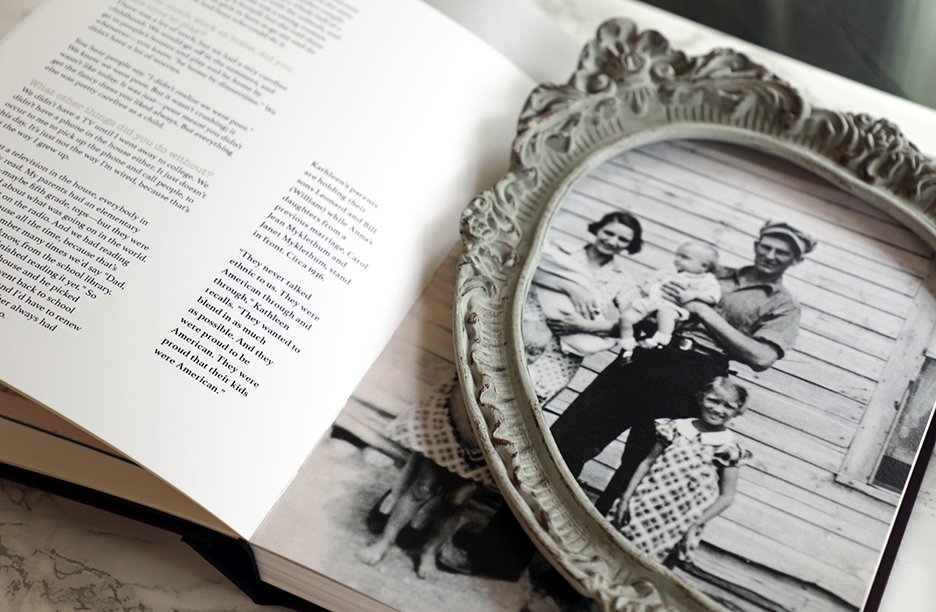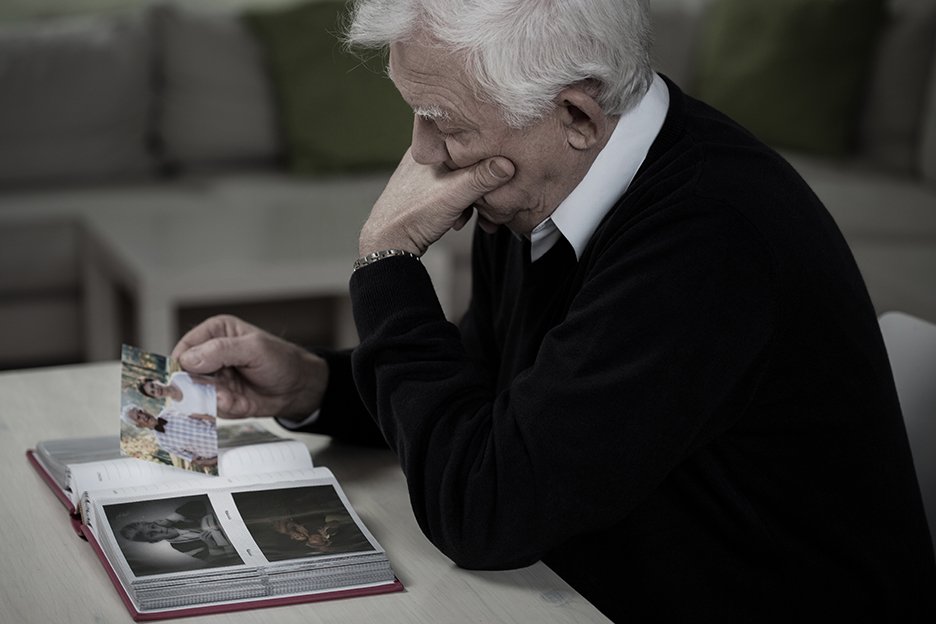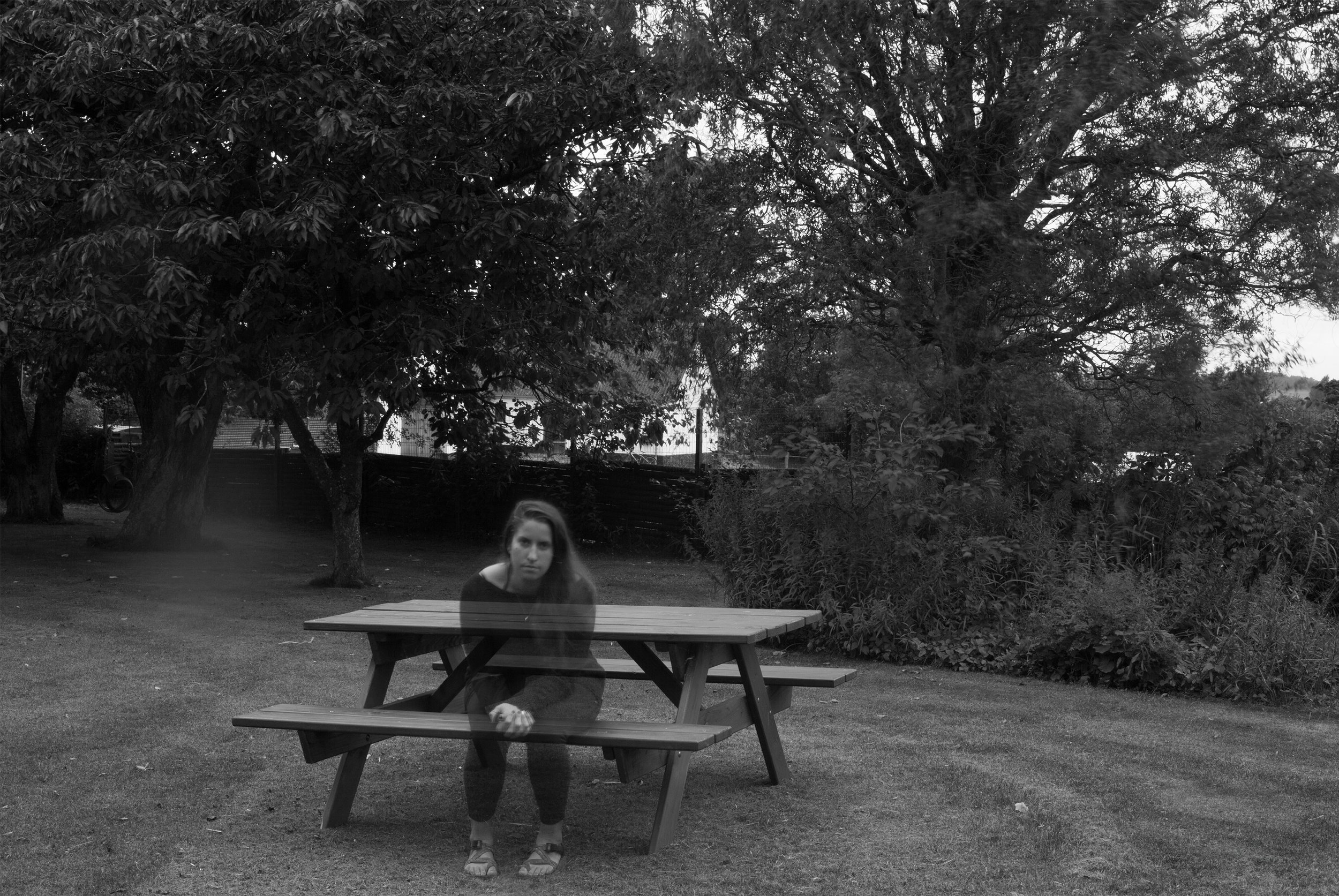Today: “I don’t care.” Tomorrow: “That was life-changing.”

Your granddaughter is too young to really listen to or understand some of your stories right now—but one day she may need to hear them, to be nourished by the lessons and comforted by your shared experiences.
“I never knew any of this stuff about you, Mom,” the daughter of one of my clients said after reading her life story book.
From a family member of another client: “When I lost my job this year during the pandemic, I had a niggling sensation that my grandmother had gone through something similar. Then I remembered: I read about her experience in her book.”
“When we hear stories from family members about their experiences, we usually ruminate longest over the ones that feel the most familiar to us.”
When we hear stories from family members about their experiences, we usually ruminate longest over the ones that feel the most familiar to us.
If I am engaged to be married, perhaps I linger over my mom’s retelling of how she and my dad met. If I’ve just had a child myself, I’ll undoubtedly read with great interest the tales of their experiences parenting me and my siblings.
Some stories will feel foreign upon first reading. Your grandmother describing life in Brooklyn during the Depression; your grandfather recalling what if felt like to return from the Great War and no longer have a purpose. Even your parent losing a job when they least expected it—that is, until that story becomes relevant to your own experience, too.
Family stories have enduring value
Life transitions are some of the strongest fodder for memoir and personal history specifically because they bring about change—and change stirs all kinds of feelings and fears.
Transitions are the plot twists in our lives. And when they are unexpected, and they are happening to us right now, we feel unmoored.
But imagine if we had access to a story about the time our dad went through something almost exactly the same. He, too, felt unmoored. He, too, had no way of knowing how this transition in his life would play out.
Then 30 years later, he reflected about that time—his experiences, his feelings, the lessons he may have learned—and his stories made their way into a book. A book that now sits on a bookshelf in your living room.
While you may have flipped through that book a dozen times before, you want to reread it now. You crave remembering how his story turned out. It has a newfound relevance for you, and as such, it means so much more to encounter it at this time in your life.
“Transitions are the plot twists in our lives. And when they are unexpected, and they are happening to us right now, we feel unmoored.”
“In former times, knowledge was passed down from father to son and from grandparents to grandchildren,” Gianluigi Quentin has written. “Today, the focus is so concentrated on the future that there is a disregard for many of the important lessons of the past. This is why it is important that we elders write our memoirs—so that younger generations can learn from our experiences.”
Indeed, this is also why some stories will matter more in 10 years than they seem to right now: because our loved ones encounter them when they need them.
The stories of our modern lives—of transitions and ups and downs—“should tell us that the best way to respond to a period of personal upheaval—the close of one story, the end of one dream—is to push through the darkness, paddle through the torrents, persevere through the woods,” Bruce Feiler writes. “And to know: We’re not alone.”
What better way to let your descendants know they are not alone than to preserve your stories for them to learn from?
Walking down memory lane can be fun, but writing about your life has big benefits beyond that, including making meaning out of your lived experience.
It’s important to me to stress some sense of urgency about writing about your life—but I don’t think you’ll have regrets if you don’t write about it ALL.
Boxes of old letters, family photos, and mementos from a generation ago can feel like a burden if they’re passed down without context. What to do with them.
You may think you are writing about your life for your family—to honor your ancestors, to give a gift to your descendants. But the truth is deeper. You’ll see.
When Mother’s Day is hard due to feelings of loss, allowing ourselves to linger in our memories may help (and, yes, hurt). A tribute made in grief, and love.
After we record your personal history interviews, I craft your story and photos into an heirloom coffee table book—not a video, not an audio file. Here’s why.
If writing your memoir means enough to you to put it on a bucket list, please read this—I’ll help you easily move it from future project to present-day endeavor.
Your legacy is more than the assets you leave behind—much more. Here, three ways to leave a personal legacy that has a positive impact on your loved ones.
Ignore those naysayers who warn that you must be passed middle age to begin writing your life stories: Start your memoir now, no matter how old you are.
It’s a common but wrong assumption—that telling one's own stories is “narcissistic” or “self-centered.” Truly, preserving your legacy is an act of generosity.
Recording loved ones' stories is important to most Americans, and yet not even half of us have done so. Here, resources to make memory-keeping easier.
Our memories are anything but fixed—and when stories are passed down to a new generation, their malleability, their meaning, and their impact change, too.
Family stories have enduring value. Some you share now may not be relevant enough for your kids to care. But one day they will see themselves in your stories.
Ever wonder what it might be like to work together on your OWN heirloom book project? Listen to past clients' feedback—and words of thanks!—to get inspired.
Writing about your life can be hard—but it’s still worth the effort. (Oh, and you’re wrong that your family members don’t care about your personal history).
Understanding the basics of how our brains encode memory can help us both remember the things we want in the future & retrieve precious memories from our past.
Dear Tim Ferriss: Have you interviewed your parents yet? It is with a healthy dose of humility & a shot-in-the-dark effort that I say to you: Do it now—please.
Is your life too boring to tell people about? Do you think it's self-centered to write a memoir? Or that your kids don't care about your stories? Think again.
It seems obvious: We should ask our parents about their lives—lessons, loves, adventures, ancestors. Then why do so many of us wait too long and then have regrets?
Did you know that listening to and sharing stories can help us live longer, happier lives? Discover three impactful ways to bring storytelling into your life.
I hope you'll take comfort in these personal stories of vulnerability and loss during the holidays. (Sharing memories about loved ones is always a good thing.)
Preserve your parents’ (and grandparents’) stories meaningfully for the next generation with these three ideas that make the process simple and enjoyable.
Sometimes the idea of telling our "life story" is overwhelming. If we think of memoir as a series of smaller life narratives, though, the way in becomes clear.
The Wall Street Journal reports that a growing number of adult children are interested in hearing more of their parents' stories. Are you among them?
A brave group of Jews secretly chronicled their daily existence in the Warsaw Ghetto during the Holocaust. Only one who knew where the archive was buried survived.
Ever tried to talk about your childhood with your grown kids only to be met with a lack of interest? They might not care now, but they will one day—I promise.
The most memorable quotes and takeaways from family history experts Amy Johnson Crow, Curt B. Witcher, Scott Fisher, and Janet Hovorka at RootsTech 2019.
Thoughts from the 2018 International Reminiscence & Life Review Conference including research challenges, anecdotal evidence, and autobiographical memory.
Family history is more than names on a chart; it's people's experiences that hold meaning. A curated list of resources for the genealogist who cares about story.



























“I wish I knew why Mom moved to New York when she was just 16.” “I wish Papa told me how he makes his Sunday sauce.” Don’t wish for stories; ask for them.